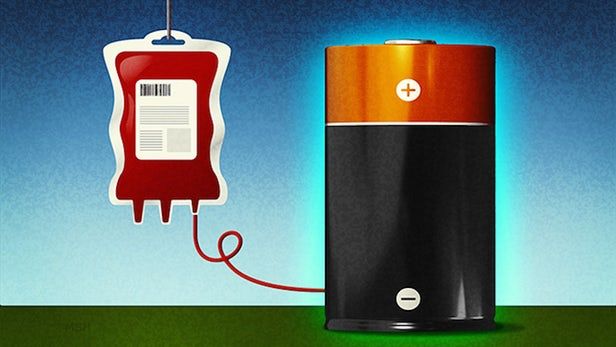Traditional lithium-ion batteries may be on the way out, as scientists continue to overcome the obstacles holding back the longer-lasting lithium-oxygen batteries. The main issue is lack of efficiency and the build-up of lithium peroxide, which reduces the electrodes’ effectiveness. But now a team at Yale has used a molecule found in blood as a catalyst that not only improved the lithium-oxygen function, but may help reduce biowaste.
Lithium-oxygen, or lithium-air batteries, have the potential to hold a charge for much longer than traditional lithium-ion batteries and extend the life of devices like phones to several weeks before they’d need to be recharged. But before those dreams can become a reality, the problems of efficiency and lithium peroxide build-up need to be solved.
Previous studies have tried to fight lithium peroxide by keeping the oxygen in the cell as a solid, and by modifying the electrode to produce lithium superoxide instead. In this case, the Yale researchers were looking for a new catalyst that allowed lithium oxide in the cell to decompose back into lithium ions and gaseous oxygen, and they found one in an unexpected place: animal blood.
